|
30th November 2022 It's a Tuesday night and we're at The Sovereigns in Woking with the Woking Gaming Club. The main game of the evening was Atlantis Rising. Atlantis; the mythical civilisation swallowed by the seas and lost to time, how did this happen? Clearly it was caused by a band of bumbling table-top gamers! What's in a game?
The quality of the components is as you'd expect from modern games universally good, the game makes extensive use of wooden tokens for meeples, resources and even the Athenian ship, which I like. The addition of glass tokens is also a nice touch and appreciated. From the perspective of art direction, I'd call the art good but not exceptional, it is however, clear and functional when needed, the different terrains are always easily discernible. I'd be remiss if I didn't comment on the board. It genuinely looks unique and eye-catching. It's not a gimmick either and makes sense in relation to the game's mechanics. The game's iconography is straightforward and easy to understand. How's it play? Setup The setup for Atlantis Rising is relatively simple.
On to play Each round in Atlantis Rising consists in a number of phases.
Endgame Play continues until 1 of 2 conditions is met. If all the tiles on the Atlantis map are flooded - including the centre tile, then the players collectively lose. If the players manage to build all 10 cosmic gate blueprints, they immediately win. Overall
Just to clarify, it was the the 1st edition we played, there is a 2nd edition which has some notable changes. Despite its nifty, unorthodox board, Atlantis Rising's central premise will be familiar to players of cooperative games. That is; players will be faced with the choice of working towards completing objectives to win the game or firefighting whatever will cause them to lose, in the case of Atlantis Rising that's 2 sources, the misfortune deck and the Athenian attacks. What Atlantis Rising brings to the table though, is a push-you-luck element. Luck is an inherent part of cooperative games and is used to mitigate players' abilities to out-strategize a game, but these push-you-luck elements add something quite different. When picking an action, players will also have to decide how much they want the resource, card or whatever, playing it safe might not get you what you need or enough of what you need. The same is true when dealing with the Athenians, it requires a lot of meeples to be fully safe from them, but the true number required is never known due to the attack die roll. Sometimes it might better to put a meeple or 2 less, it might be riskier, but it gives you 2 workers that could have a vital use elsewhere. In both instances it's a solid use of risk/reward and it gave me the feeling that it's hard to win the game by playing cautiously and at some points players just have to take risks. Having said that, I do have an issue with the whole Athenian attack mechanic. I really don't like how the players have to collectively commit more and more workers to fighting the Athenians off. It can mean players are making effort to acquire workers simply for this purpose and feels like quite a negative mechanic. I'm not alone in this thought as this was revised for the 2nd edition. This also brings me to another element of the game; as it progress on and more tiles flood, players will get less and less choice where to place their workers. It feels counter to how games - especially worker placement games flow, typically a player's choices and options expand as a game goes on but Atlantis Rising does the opposite, I know that it's part of the game's challenge and players need to work to prevent this but still sort of feels off. Other than these two criticisms, Atlantis Rising is a perfectly acceptable game that cooperative gamers will be comfortable with. Atlantis Rising doesn't stand out from the crowd but neither does it do anything wrong. Personally, I like how it looks, especially watching Atlantis gradually sink!
0 Comments
Leave a Reply. |
AuthorI play, I paint. Archives
March 2024
Categories
All
|

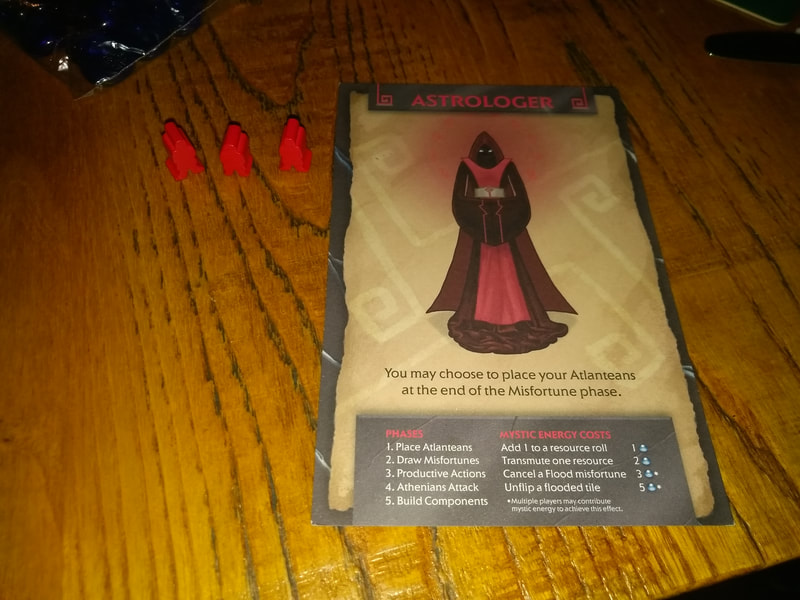
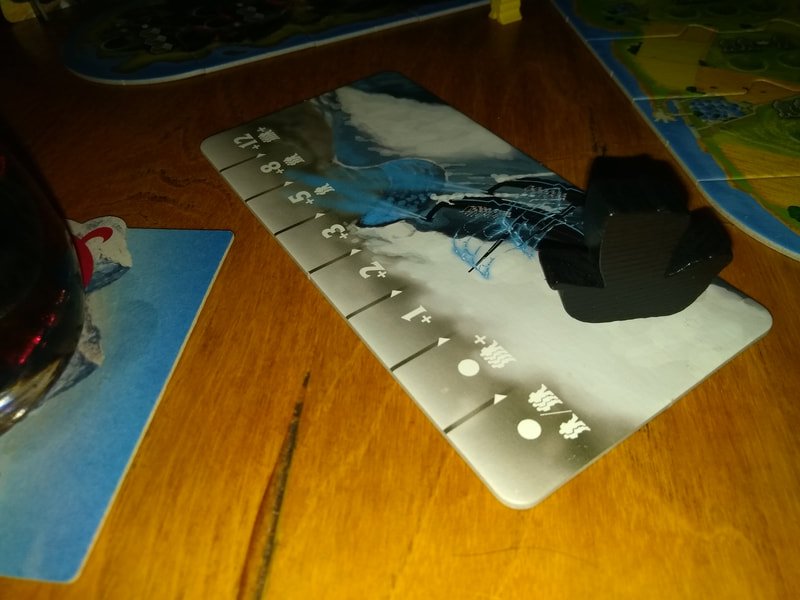
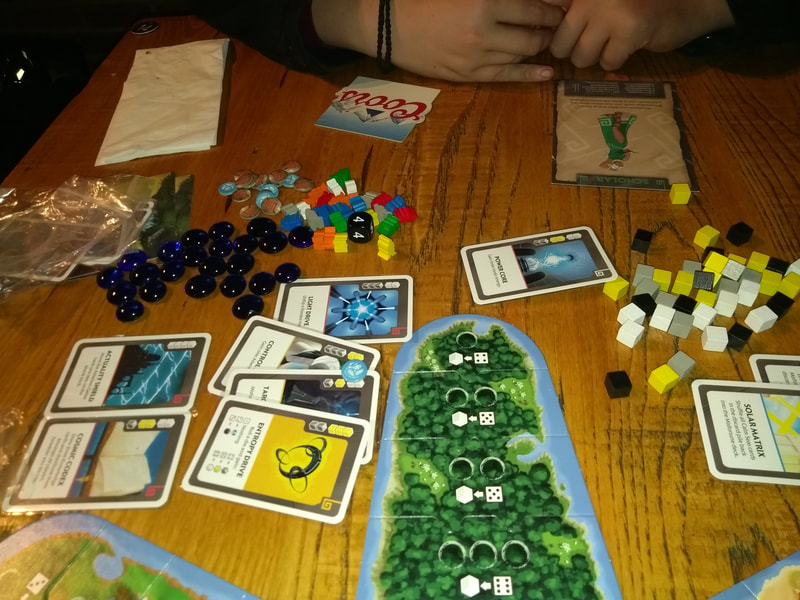
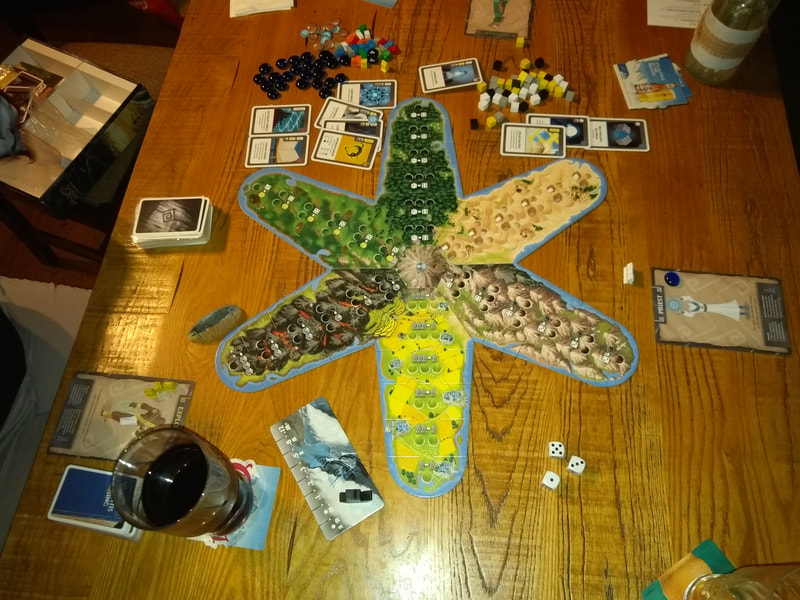
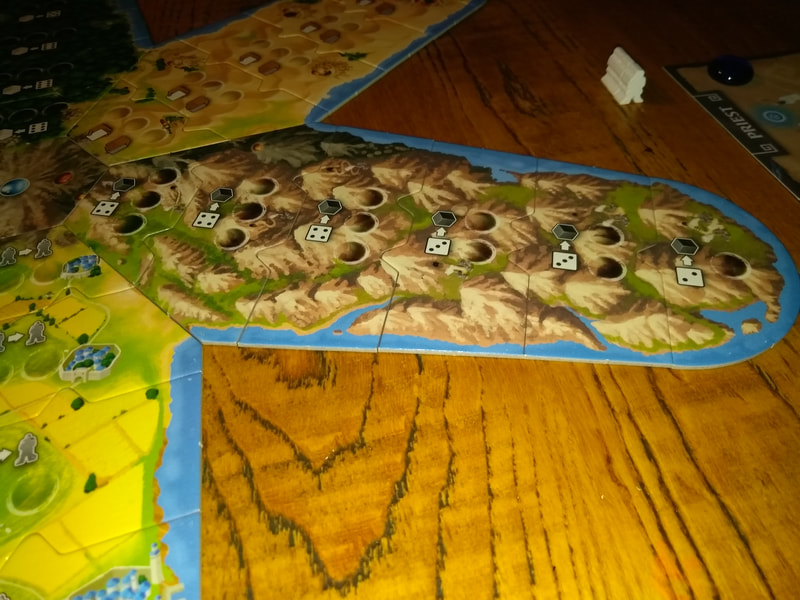
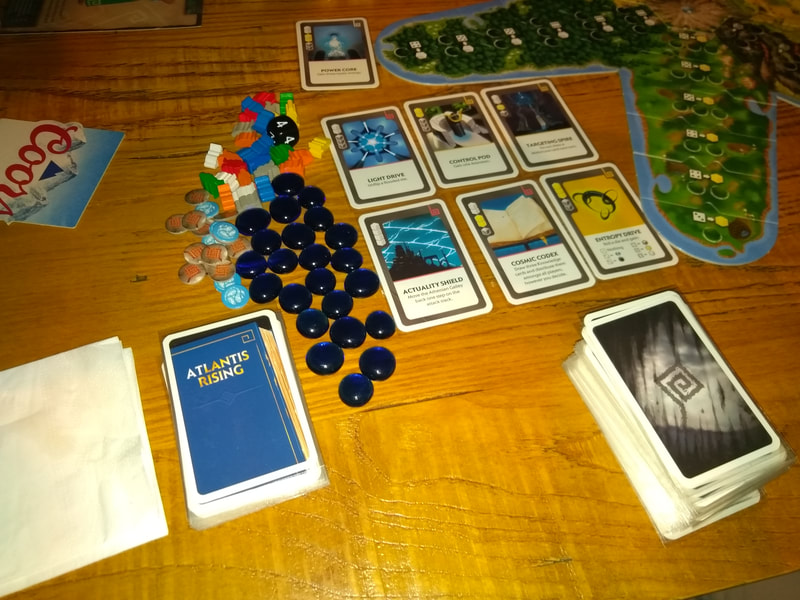
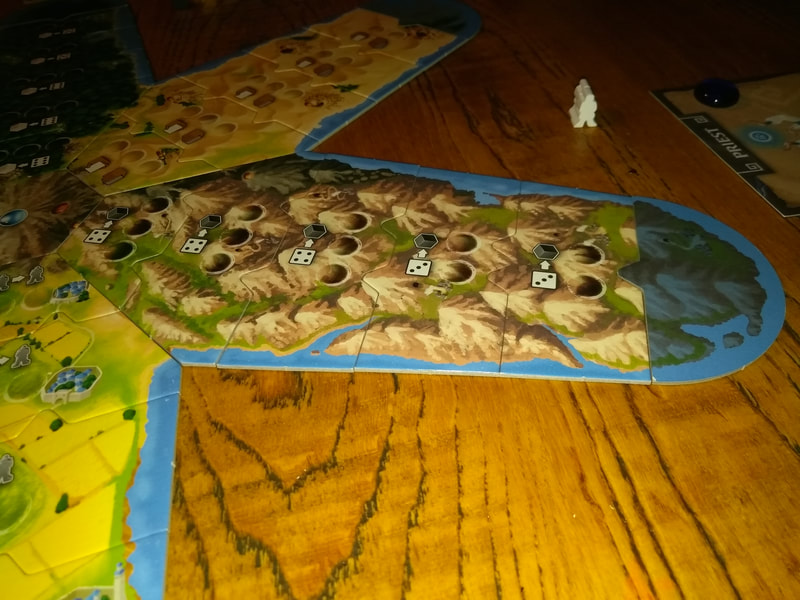
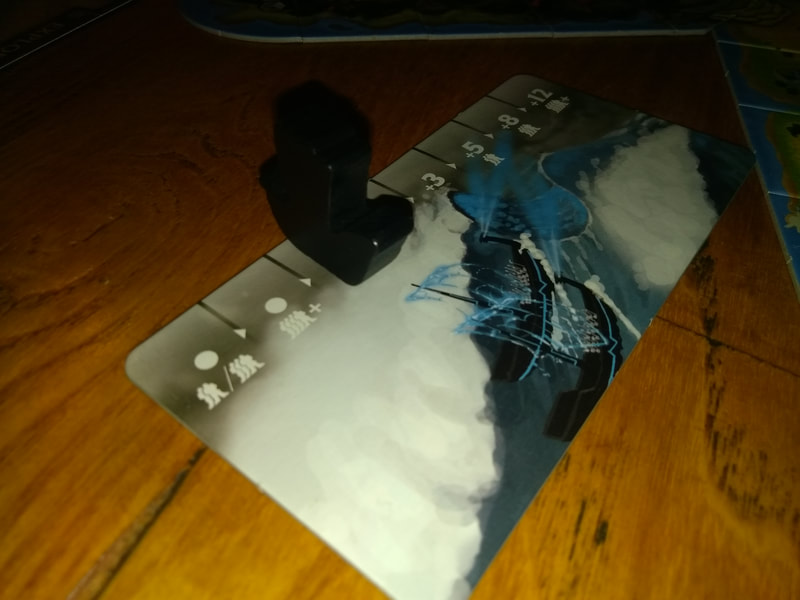
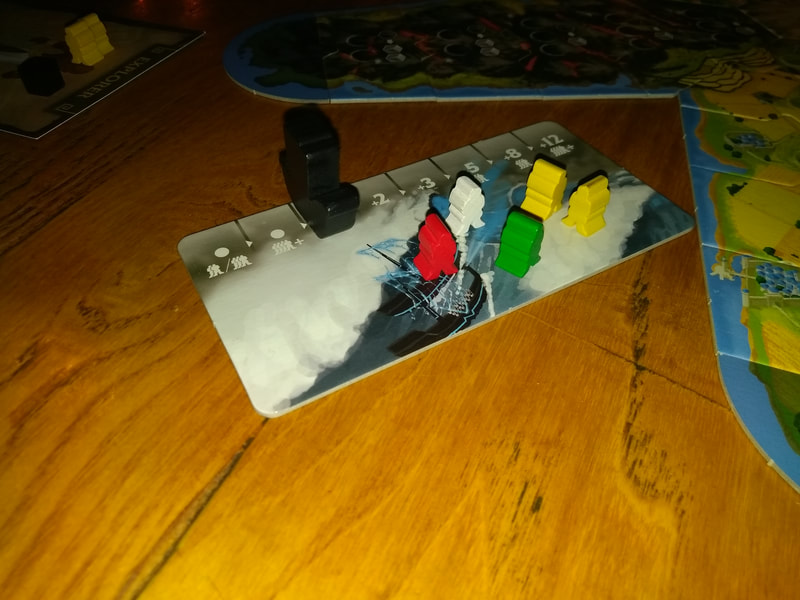
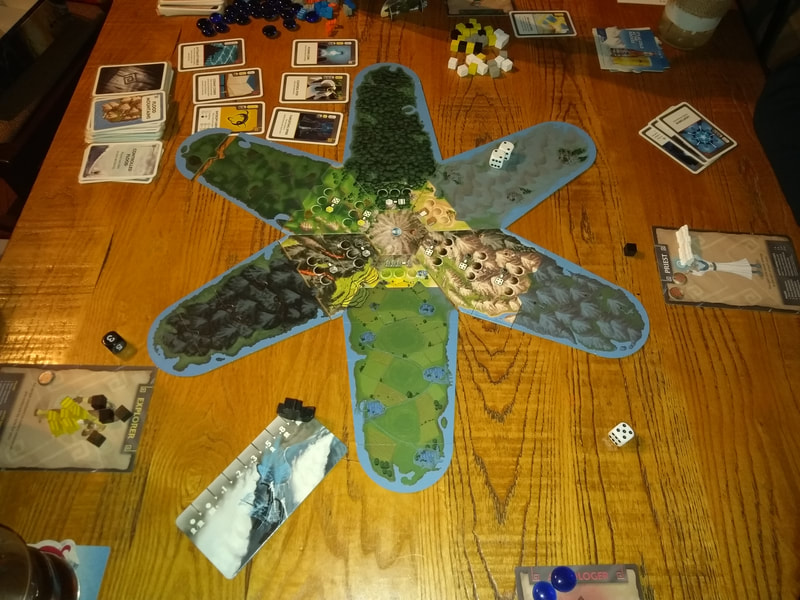
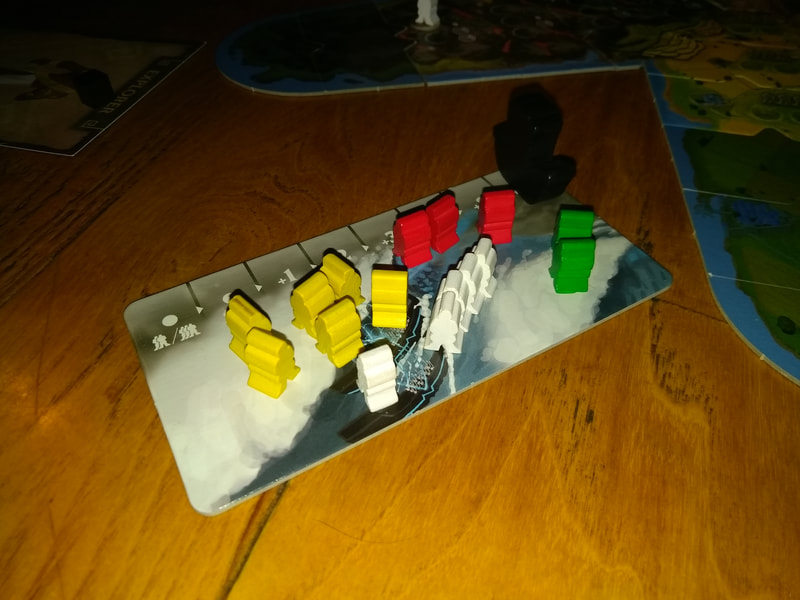
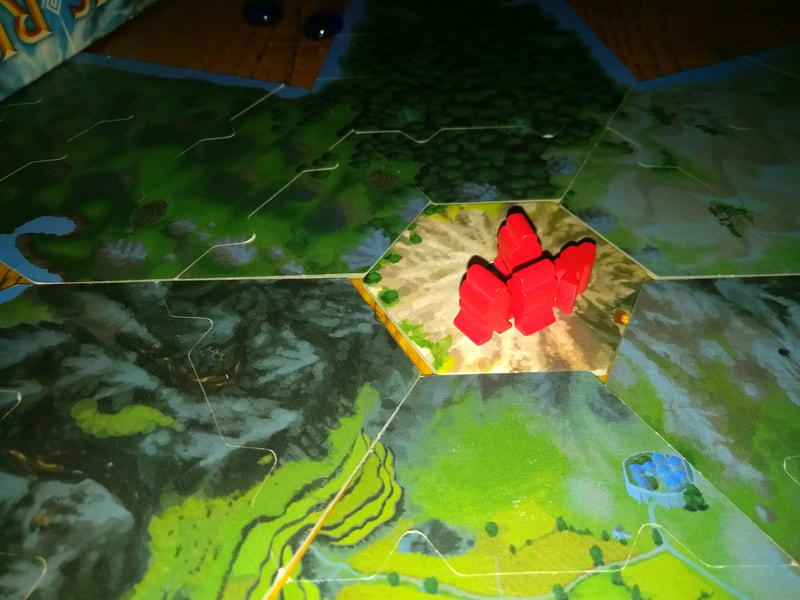
 RSS Feed
RSS Feed
